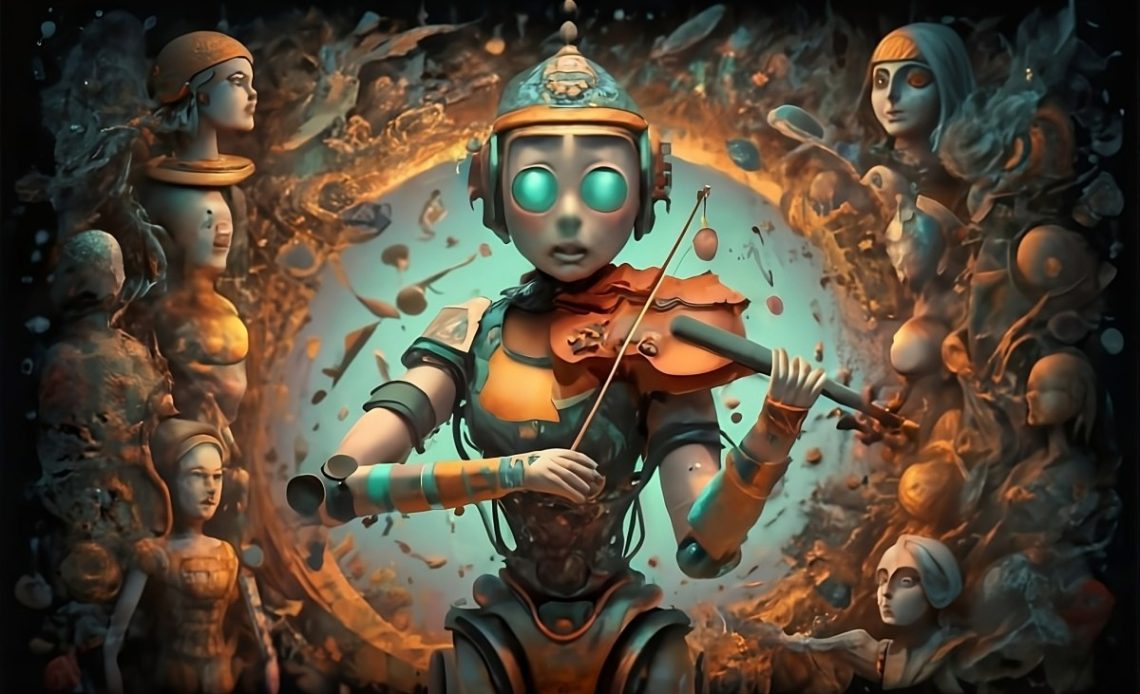
From the Enlightenment to the Industrial Revolution right up to present day, leading science, technology, engineering and math (STEM) thinkers have served humans incredibly well. Figures like Alexander Cummings, Marie Curie, Jonas Salk, Norman Borlaug and countless others have saved vast numbers of our species from untold suffering through rigorous interrogation of the natural world.While we as a society become increasingly technical, the humanities have, by many measures, suffered a decline. The number of degrees granted and programs offered at U.S. universities have fallen in recent years, with some colleges cutting entire departments. Even such cultural and literary bastions as The New Yorker have lamented “the end of the English major.”
Given these trends, one could be forgiven for worrying that the rise of AI — and the salaries its studies confer — could spell the death knell for the liberal arts as a rewarding and worthwhile pursuit for individuals or our species as a whole. Many argue that this is just as well, since STEM is the real enabler of human progress and freedom from suffering.
However, I would argue that the rise of AI makes the humanities more important than ever and potentially forever, and not just because science hasn’t yet provided answers to classic philosophical questions like what it means to live a finite existence in a potentially infinite universe or how one lives a “good” life.
Let’s not approach everything through a narrow lens
For example, the temptation for some to hide in American Standard English due to perfect translation services and to treat the world as if it spoke as we do, and therefore thinks as we do, would be a terrible instance of leaky abstraction with potentially tragic consequences for our civilization.
As the anthropologist Wade Davis once said, “every language is an old growth forest of the mind.” To approach everything through a narrow English lens would be a terrible act of cultural deforestation.
To drive the humanities forward in an AI world, we must recognize:
- The need for the ethics branch of philosophy to guide our applications of technology and answer the question of what we should do, not just what we can do. “You can’t get an ought from an is,” wrote Scottish enlightenment philosopher David Hume. AI ought to be used for the public good according to countries like Japan, but applications in policing, sentencing or social scoring threaten to turn what it is into something dystopian.
- The need for the logic branch of philosophy to formulate cogent and rational arguments and not just to argue from positions of ideology and dogma or, worse, machine assisted (or one day machine-driven) value manipulation.
- The need for psychology and sociology to understand the anthropological impact of technology coming at an ever greater and, due to the Law of Accelerated Returns, combinatory manner (think Singularity). The economic historian Brad Delong argues that technology enabled as much advancement between 1870 and today as in the Millenia between 6000 BC and 1870 AD. With the advent and continuous improvement of AI, how will humanity equip itself to process millennia’s worth of progress in single decades?
- The need for literature and art to explore the ineffable and not just the literal. In many ways, that which is sublimely beautiful communicates more than it says. AI and technology can do this, or will soon be able to, but we still must be able to judge value and not merely abdicate art to machines. The post-moderns struggled to discern the value of painting in a world of cameras that could capture scenes perfectly. That is now the struggle of other art forms. Painting survives, and so too must poetry, prose, illustration and other fine art forms.
- The need for history and archival sciences to analyze the mistakes of the past and to learn from them. The Biblical demon Moloch is an analogy often used to describe humanity’s inevitable march toward technologically-enabled self-destruction. This theme saturates popular culture today and is certainly present in breathless discussions of AI’s ultimate capabilities. All this is not to mention the critical role historians play in uncovering and preserving facts as opposed to slanted narratives promoted by the powerful and parroted by the unthinking.
The struggle for the future of critical thinking
Put another way, in a highly recommended essay entitled ‘Now the humanities can disrupt AI,’ Lauren M. E. Goodlad and Samuel Baker write: “As unloved corporate behemoths try to pass off data-scraping statistical models as AI genies, the world’s humanists, composition instructors and creative writers might just be the new MVPs in the struggle for the future of critical thinking.”
Maybe it’s time for a renaissance of the arts — among artists but also among technologists. This is for our collective good, but it also will help those struggling for meaning, for a post-post-modern mythology, for a common framework to interpret our emerging, brave new world.
Author: Sam Curry, Zscaler
Source: Venturebeat
Reviewed By: Editorial Team



